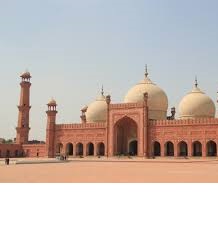Biography of Hafiz Ahmad Shakir, the son of Shaykh Ata’ullah Haneef Bhujiyani

Hafiz Ahmad Shakir (September 1944-22 November 2022)
Hafiz Ahmad Shakir is the son of the great Muhadith Shaykh Ata’ullah Haneef Bhujiyani. He was born in September 1944 in Kotpurah. At the time Shaykh Ata’ullah Haneef Bhujiyani was residing in Fayrozpur and was teaching and leading Khutbah in Jami Masjid Ahl e Hadith Gundadan Wali.
At the age of 3 in 1947 at the partition, his family moved to Pakistan in Gondlawala. His younger brother Muhammad passed away in Gondlawala. Afterwards for few moments, Shaykh Ata’ullah Haneef Bhujiyani moved with his family to Chiniyan Wali Masjid in Lahore and then upon the advice of Shaykh Dawood Ghaznavi, he moved to Shish Mal Rd and became the head teacher of Dar Al-Ulum Taqwiyatul Islam, the Madrasah of the Ghaznavi family.
Hafiz Ahmad Shakir read the Quran mostly from his mother and also from his father and from Shaykh Abu Bakr Siddiq Salafi who was a student of his father at the time. Afterwards he started to memorise the Quran from a Masjid nearby from Qari Ghulam Muhiudin.
His mother passed away on 19th April 1957 after an illness of 6 months and Hafiz Ahmad Shakir had completed the memorisation of the Quran few months before and a ceremony was held by his father and which was attended by his teacher Qari Ghulam Muhiudin, his paternal uncle Qari Muhammad Abdullah, Shaykh Dawood Ghaznavi and Shaykh Muhammad Ismaeel among others.
Before the death of his mother, his father Shaykh Ata’ullah Haneef Bhujiyani had left teaching in “Dar Al-Ulum Taqwiyatul Islam” and had started his bookshop “Al-Maktabah As-Salafiyah” on Shish Mal Rd. He had strated writing “At-Ta’liqat As-Salafiyah ‘ala Sunnan An-Nasa’i” and his first published book was “Al-Fawz Al-Kabir fi Usul At-Tafsir” with summarised notes in conjunction with Shaykh AbdulQadir Nadwi. Shaykh Ata’ullah Haneef Bhujiyani had to take loans for the treatment of his wife in her illness.
After the death of his mother, Hafiz Ahmad Shakir joined the Madrasah Tajwid Al-Quran of Qari Fazal Karim. After a year in this Madrasah, Hafiz Ahmad Shakir led his first Tarawih in Masjid Aziziyah Misri Shah
Afterwards his father sent him to Jamiyah Muhammadiyah in Okara to study Dars Nizami. Hafiz Muhammad Bhutvi who was Shaykh Al-Hadith there and Shaykh Mu’eenudin Lakhvi who was the Nazim, both advised Shaykh Ata’ullah Haneef to register his son in Lahore instead but Shaykh Ata’ullah Haneef wanted his son to join a Madrasah and live in it to fully study. So Shaykh Ata’ullah went to see his teacher Shaykh AbdulJabbar Kandhalvi and Shaykh AbdulJabbar advised Shaykh Ata’ullah Haneef that his son should study Al-Kafiyah in Lahore and after he can send him to him.
Thus Hafiz Ahmad Shakir started Dars Nizami in “Dar Al-Ulum Taqwiyatul Islam”, and he studied there from:
Hafiz AbdurRasheed Goharwi: Nahow Mir, Sarf Mir, Bulugh Al-Maram, At-Tariqah As-Sahlah. Arabi ka Mu’alim, Mishkat first part, Hidayah An-Nahow, Al-Qira’ah Ar-Rasheedah, Kafiyah and others.
Shaykh AbdurRasheed Mujahidabadi: Translation of the Quran, Sharh Miah Amil, Tafsir Jami Al-Bayan, Fusul Akbari, Usul Shashi, Maqamat Hariri and others.
Hafiz Muhammad Ishaq: Abwab Sarf, Mishkat second part, Sunnan Tirmidhi.
He also studied in the afternoon from his father: Sunnan An-Nasai, Sharh Nukhbatul Fikar, Sunnan ibn Majah and Muwatta.
Among his class fellow we count: Hafiz Salahdin Yusuf, Hafiz Muhammad Ashraf Sa’eed, Shaykh Ata’ Ar-Rahman, Hafiz AbdulMajeed Karolvi, Shaykh AbdulLatif Karolvi, Shaykh Muhammad Luqman, Hakeem Muhammad Ajmal, Shaykh AbdulWahid Salafi Bhervi, Shaykh Nazeer Ahmad Bhervi and others.
The year Hafiz Ahmad Shakir started Sunnan Abi Dawud in Dar Al-Ulum Taqwiyatul Islam, he had to leave this Madrasah and his father sent him to Jamiyah Madinah of Shaykh Hamid Mian. He studied there “Sharh Wiqayah” from Shaykh Hamid Mian, “Nur Al-Anwar” from Shaykh Deen Muhammad, “Sharh Jami” from Shaykh Hakeem AbdulHakim and “Mirqat”, “Sharh Tahzib”, “Qatbi” from Mufti AbdulHameed. He studied some parts of “Mibazi”, “Hidayah Awalin” and “Mukhtasar Ma’ani” from Shaykh Zuhur Al-Haqq.
Hafiz Thanaullah Madni and Shaykh AbdusSalam Kaylani were his class fellows in the lessons of “Hidayah Awalin” and “Mukhtasar Ma’ani”.
In 1965, Hafiz Ahmad Shakir joined Jamiyah Islamiyah Gujranwala, and he studied from Shaykh Abul Barakat Ahmad: Sahih Al-Bukhari, Sharh Nukhbatul Fikar, Siraji (up to Zawil Arham), Husami and others.
He studied Sahih Muslim from Shaykh Nazeer Ahmad and completed his studies in 1965.
Hafiz Ahmad Shakir married in 1965 and had his first son Hammad Shakir in 1966.
Hafiz Ahmad Shakir taught the Quran for some time in a Madrasah and taught afterwards in Dar Al-Ulum Taqwiyatul Islam for 2 years. He taught there the books: Usul Shashi, Sharh Nukhbatul Fikar and other books.
Afterward He took in charge Maktabah Salafiyah and the magazine established by his father “Al-Itisam” and the building “Dar Ad-Da’wah As-Salafiyah” also established by his father. “Dar Ad-Da’wah Salafiyah” contains a Madrasah for Hifz, a Masjid, the office of “Al-Itisam” and the library of Shaykh Ata’ullah Haneef Bhujiyani.
Shaykh Ahmad Shakir published in 4 volumes the Fatawa and articles written by his father in “Al-Itisam” and other magazines. He translated “Juzz Qiraat Khalf Al-Imam” published by Maktabah Salafiyah, with the Tahqiq of Shaykh Faydh Ar-Rahman Thawri and reviewed by Shaykh Ata’ullah Haneef. Many other books published by Maktabah Salafiyah were published under his supervision.
Hafiz Ahmad Shakir passed away on the 22 November 2022 after spending his whole life in propagating knowledge. Shaykh Ateequllah Salafi lead the funeral prayer in which many senior scholars came such as Shaykh Irshad Al-Haqq Athari, Hafiz Masood Alam, Mian Muhammad Jameel, Shaykh Chaudry Yasin Zafar, Dr Tanvir Qasim, Abu Bakr and Umer Farooq Quddusi, Dr Azeemudin Lakhvi, Qari Suhaib Mir Muhammadi, Shaykh AbdusSamad Mua’z and many others.
His son Hammad, Khallad, Abbad, Hannad and Jawad are carrying on the bookshop and magazine established by Shaykh Ata’ullah Haneef Bhujiyani.


LEAVE A REPLY
You must be logged in to post a comment.